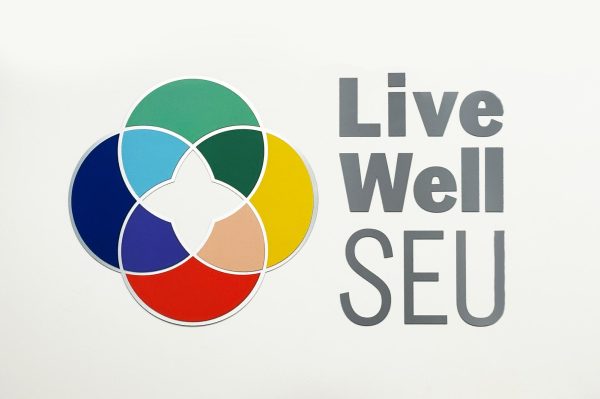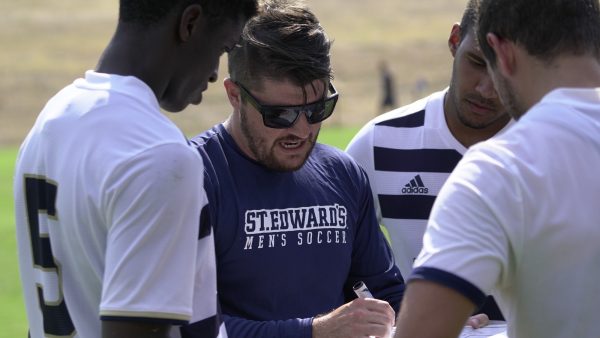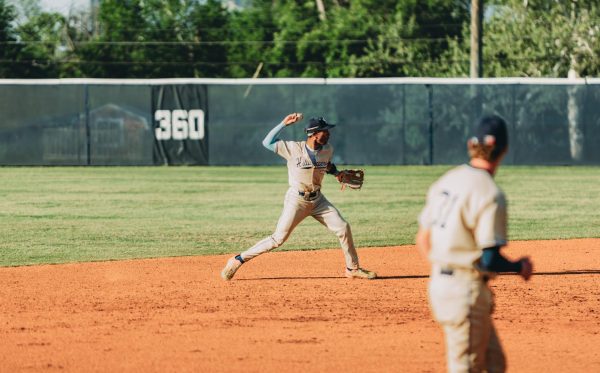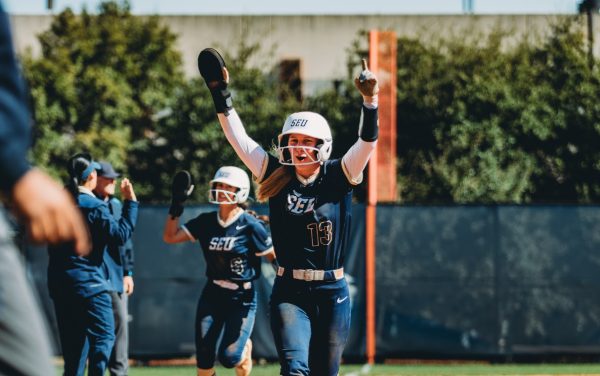NHL’s Chicago Blackhawks commit to reading land acknowledgement in honor of team’s deep rooted history
The Blackhawks are part of the first professional sports teams to commit to change since suffering backfire on their logo, mascot, and name.

Courtesy of Wikicommons/ Sportsgamaniacre
This year the team advanced to the playoffs since the 2016-2017 by defeating Edmonton Oilers. The Chicago Blackhawks finished the 2019-2020 season 32-30-8.
November marks the beginning of Native American Heritage Month. According to the national Native American Heritage Month website, “What started at the turn of the century as an effort to gain a day of recognition for the significant contributions the first Americans made to the establishment and growth of the U.S., has resulted in a whole month being designated for that purpose.” Now, the Native community is even being acknowledged by the most unlikely of people — the Chicago Blackhawks.
The National Hockey League (NHL) team announced its dedication to reading Indigenous land acknowledgements before each home game during the month of November. On their NHL page, the Blackhawks have a Native American History Month section that describes their initiative and the history of Black Hawk, the native chief of the Sauk tribe from whom the team is named. They’ve also banned fans from wearing headdresses to games.
The Blackhawks describe the land acknowledgements as “a formal statement that recognizes the unique and enduring relationship that exists between Indigenous Peoples and their traditional territories.”
However, to many Native Americans, this statement comes off as an empty publicity stunt, and some feel this sudden dedication to the land acknowledgements was intended to disregard the previous criticisms that the team has faced in the past. This past summer the Blackhawks announced that despite avid backlash in the wake of the Washington Football Team controversy, they would still be keeping their mascot.
Dr. Dorene P. Wiese is the President of the American Indian Association of Illinois (AIAI)— a local community nonprofit located in Chicago. Wiese explained that indigenous land acknowledgments are used to recognize the genocide that indigenous people have suffered through, and highlights the richness of their individual cultures. And although high profile entities like the Blackhawks have begun using land acknowledgements, they still fail to recognize that Native people still live around them and often in poverty.
“The statement… leaves out a great many tribes from the past and present. It also does not speak to thousands of Native people who were pushed out of Illinois and whose land was stolen. The largest group…in the Chicago area is the Three Fires Confederacy of the Ojibwe, Odawa and Potawatomi Nations [and the] second…was the Illinois Confederacy..The Blackhawks team needs to do some extensive research to describe the Native people who lived here and still live here and to address their real suffering.” Wiese said.
While the Blackhawks did partner with the suburban Trickster Cultural Center, Wiese sai that the suburbs are not Chicago, and the majority of Native youth live in Chicago.
“They…[need] to recognize their mascot [is] damaging Native children and eliminate it. The National Indian Education Association, the National Congress of American Indians, the National Psychological Association, and many other groups, have given statements about the many ways Native children and youth are damaged by mascots. The team did very little to help the Native youth in Chicago and there are tremendous needs for sports activities, tutoring, and cultural activities, right here in Chicago.” Wiese says.
Wiese recommends that non-native individuals can show their support by teaching American Indian history in schools and invite Native people to participate in programs on policy and the arts. They can also donate to programs that support Native youth like the AIAI or the Chi-Nations Youth Council.






